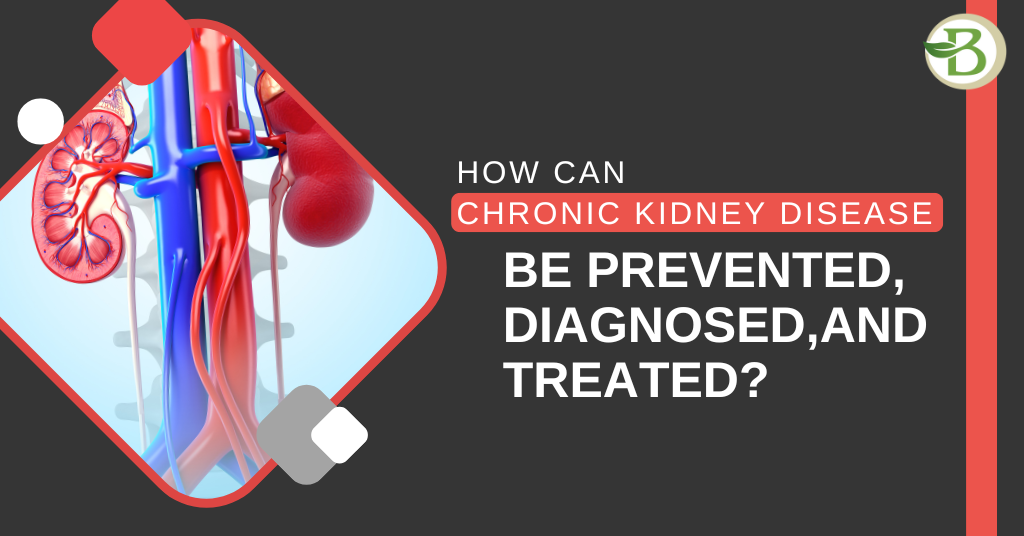Chronic Kidney Disease: A Major Health Concern
Chronic Kidney Disease (CKD) is becoming increasingly prevalent in today’s society, with more and more cases being reported each day. Those affected by this condition often encounter challenges that can persist throughout their lifetime. Chronic kidney disease is a critical ailment that has to be treated to prevent life-threatening challenges.
By educating ourselves and others about CKD, we can better understand this condition and learn how to manage it effectively. This blog post aims to provide you with detailed insights into CKD, the importance of early diagnosis, preventative measures that can be taken, and the potential benefits of homeopathy in treating this condition.
What is Chronic Kidney Disease?
The term “Chronic Kidney Disease” (CKD) defines a long-term medical condition that impairs kidney function. Millions of individuals worldwide have been diagnosed with this severe and perhaps life-threatening disease. Your body uses your kidneys as a filter to eliminate waste, toxins, and extra fluid from your blood. They also contribute to the health of red blood cells and bones. However, when your kidneys fail to work, waste builds in your blood because it cannot be filtered, causing major health concerns and significant harm to the kidney’s overall health.
Numerous factors, such as high blood pressure, diabetes, and certain genetic abnormalities, can contribute to chronic kidney disease.
Typically, CKD starts off slowly and with minimal symptoms. These can include fatigue, swelling, changes in urine output, and an increased risk of heart disease and other health problems. However, if it progresses, it may result in end-stage renal disease, generally known as renal failure. The sooner you become aware of your health condition, the sooner you can take precautions to safeguard yourself.
Early detection and management are not just crucial; they are empowering. They allow you to slow down the advancement of CKD and prevent further kidney damage. For those at risk or experiencing symptoms of chronic kidney disease, seeking medical care and undergoing regular screenings can be a proactive step towards maintaining your health. Raising awareness about CKD and promoting early intervention can collectively improve outcomes and quality of life for those affected by this condition.
Is CKD a cause of concern?
Many individuals may wonder about the implications of being diagnosed with CKD. The answer is yes. CKD is indeed a cause for concern. It is a progressive disease that can have serious consequences if left untreated.
CKD can lead to various complications that can significantly impact a person’s health. One of the primary concerns is the accumulation of waste products and toxins in the body, as the kidneys are responsible for filtering and removing these substances. When the renals’ are impaired, these toxins can build up, resulting in a condition called uremia. Uremia can cause symptoms such as fatigue, nausea, loss of appetite, and difficulty concentrating.
Additionally, CKD can result in imbalances in the body’s fluid and electrolyte levels. The renals play a crucial role in regulating these levels, but when they are damaged, fluid retention, high blood pressure, and electrolyte abnormalities can occur. These imbalances can further contribute to complications such as heart disease, stroke, and bone disorders.
Furthermore, CKD can affect the production of red blood cells, leading to anaemia. Anaemia can cause fatigue, weakness, and shortness of breath. It can also impair the ability of the body to deliver oxygen to tissues and organs, further exacerbating the effects of CKD.
In conclusion, chronic kidney disease is a definite cause for concern due to its progressive nature and potential complications. Individuals with CKD need to work closely with healthcare professionals to manage the condition and minimise the risk of further complications.
Why is it crucial to take Preventive Actions against CKD?
The importance of implementing preventive actions against Chronic Kidney Disease (CKD) cannot be overstated. CKD is an ongoing disease that can lead to irreversible damage to the kidneys, ultimately resulting in kidney failure. By taking preventive measures early, individuals can significantly reduce their risk of developing CKD and its associated complications.
Tips for preventing chronic kidney disease:
- Maintain a healthy and fit lifestyle by incorporating a kidney-friendly diet that includes fresh fruits and veggies, lean protein, and whole grains.
- Processed meals, high-sodium foods, and sugary drinks should be consumed in moderation as they might aggravate kidney disease.
- Make sure to drink plenty of water throughout the day to stay hydrated.
- To keep a healthy weight and improve general well-being, engage in frequent physical activity and exercise.
- Quit smoking and alcohol consumption, as these habits can harm the renals and increase the risk of CKD.
- Manage underlying medical issues, including high blood pressure and diabetes, as these are significant risk factors for CKD.
- To monitor your kidneys’ health, take prescription drugs as your physician advises and schedule routine checkups.
- Be prudent with over-the-counter medications and supplements, as some of them can be harmful to the kidneys.
- Practice good hygiene and prevent infections, as certain infections can lead to renal damage.
By implementing these preventive actions, individuals can safeguard their renal health and reduce the burden of CKD on both personal and public health levels.
How is CKD diagnosed?
A range of medical examinations and tests are employed to diagnose chronic kidney disease, which aids in the doctors’ assessment of the illness’s severity and presence. One of the main techniques is a blood test to determine the blood’s levels of urea and creatinine. In addition, a urine test is performed to look for blood or protein in the urine, as these might indicate renal impairment.
A glomerular filtration rate (GFR) test is another frequently used diagnostic technique that monitors how well the kidneys filter waste from the blood. A lower GFR indicates reduced renal function and the presence of CKD. These tests provide detailed images of the kidneys, allowing the healthcare experts to assess their size, shape, and overall condition.
It is noteworthy that chronic kidney disease diagnosis involves considering various factors, including medical history, symptoms, and the results of multiple tests. Healthcare professionals use a combination of these diagnostic methods to accurately diagnose CKD and develop an appropriate treatment plan tailored to the person’s unique needs. Regular monitoring and follow-up visits are also crucial to track the progression of the disease and make necessary adjustments to the treatment approach.
Are there any Treatment options available for CKD?
Yes!. When looking for treatment options for CKD, it is important to consider all available options, including Homeopathy. The homeopathic school of medicine is an alternative mode of therapy that stimulates the body’s innate healing mechanisms with natural substances. It is centred on treating the person as a whole, considering their mental, emotional, and physical health.
“When it comes to a safe and efficient course of treatment for chronic kidney disease, homeopathic treatment for chronic kidney disease is unquestionably the best choice because it speeds up the healing process compared to ayurveda and allopathy, which need several sessions to cure,” says Dr Kanchan, our homeopathic physician. Allopathic chronic kidney disease medication has adverse side effects and aftereffects. Homeopathy doesn’t have any of these things. All of them aim to eliminate the underlying causes of CKD, but homeopathy speeds up healing and eliminates more underlying causes to restore health.
Homeopathic remedy for chronic kidney disease is chosen based on the patient’s unique symptoms and overall health profile. Homeopathy is considered safe and gentle, making it a popular choice for those looking for natural treatment options for CKD.
With the right approach and guidance, homeopathy can be a valuable treatment option for managing CKD and improving overall renal health.
Best CKD Treatment at Bharat Homeopathy
Discover the most effective chronic kidney disease treatment at Bharat Homeopathy. Our renowned homeopathic remedies have been proven to successfully treat CKD and various other kidney-related conditions. With our complete approach to healing, we want to alleviate symptoms while managing the underlying causes of chronic kidney disease, encouraging long-term health and wellness. Our experienced homeopaths tailor treatment plans to each individual, ensuring personalised care and optimal results.
Choose Bharat Homeopathy as a safe and natural alternative to conventional treatments for CKD. Our homeopathic remedies are gentle yet powerful, working with your body’s natural healing mechanisms to restore balance and vitality. Say goodbye to the side effects of traditional medications and embrace a holistic approach with our proven homeopathic treatment for kidney disease. Find a natural cure for kidney problem now, and set yourself free from a diseased life.


